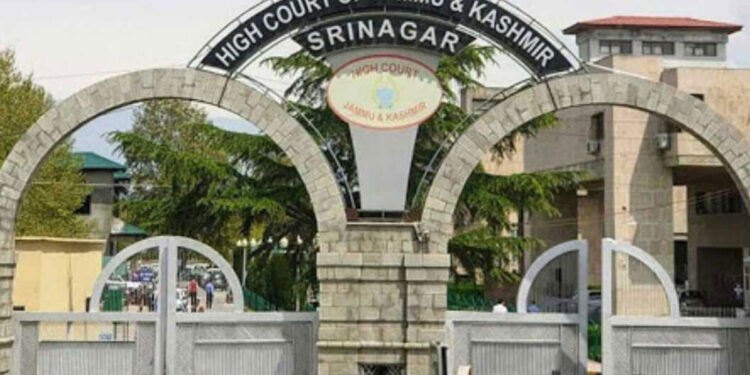The Jammu and Kashmir and Ladakh High Court have affirmed the extensive revisional powers of the Financial Commissioner under Section 15 of the J&K Land Revenue Act, 1996. The court clarified that the availability of a special remedy under Section 121 does not preclude the application of the general revisional powers under Section 15.
The High Court has determined that the power of the Financial Commissioner under Section 15 of the J&K Land Revenue Act, 1996, is extensive and not restricted by the provisions of Section 121. The Financial Commissioner retains the authority to review the legality of orders issued by subordinate officers within his jurisdiction and correct any obvious errors.
The case revolved around a land dispute among three brothers: Tirath Singh (the original petitioner), Kulvant Singh, and Nirmal Singh (respondents 5 & 6). The land was initially jointly vested in their favor through a mutation under Section 8 of the Act of 1976. However, a subsequent mutation under Section 121 of the Act excluded Kulvant Singh and Nirmal Singh, assigning sole ownership to Tirath Singh.
Kulvant Singh and Nirmal Singh contested this mutation by filing a revision petition before the Divisional Commissioner, arguing that they were unaware of it and that it violated principles of natural justice. The Divisional Commissioner concurred and recommended overturning the mutation. However, upon reference, the Financial Commissioner rejected the recommendation on technical grounds, citing a failure to serve notice on Tirath Singh in the revision petition.
Despite the initial technical rejection, the parties jointly requested the Financial Commissioner to adjudicate the matter on its merits. The Financial Commissioner, utilizing his revisional authority under Section 15, ultimately accepted the petition and deemed the mutation illegal. This ruling was contested by Tirath Singh in the High Court.
Tirath contended that Section 121 provided an independent remedy, and the Financial Commissioner’s revisional power under Section 15 was precluded. He further argued that the exclusive remedy should have been the special appeal provision under Section 121.
Upon reviewing the arguments, Justice Wani clarified that the presence of a special remedy under Section 121 does not nullify the general revisional power under Section 15.
Referencing the Supreme Court’s ruling in Bihar State Cooperative Marketing Union Ltd. vs. Uma Shankar Sharan, the court highlighted that a special remedy does not exclude a general remedy unless explicitly stated. Consequently, an affected party can choose either remedy, but not both.
Expanding on the issue, the bench emphasized that Section 15 empowers the Financial Commissioner to rectify legal errors made by subordinate officers, ensuring proper management of land records. Additionally, the court noted that while the Divisional Commissioner’s jurisdiction is limited during settlement operations, the Financial Commissioner’s revisional power remains intact.
“A thorough examination of the provisions of Section 8 and 10 of the Act of 1996, coupled with Section 15, which outlines the Financial Commissioner’s revisional powers, clearly indicates that there are no exceptions under any circumstances. All revenue officers specified in the Act of 1996 are subject to the overall control and supervision of the Financial Commissioner, in addition to his revisional jurisdiction,” the court stressed.
Regarding the language used in Section 121 of the Act, Justice Wani explained that Section 121 only binds the parties involved in the dispute, not the authorities themselves. This implies that the appeal option under Section 121 acts as an additional layer of protection for aggrieved parties, existing alongside the general revision power of the Financial Commissioner under Section 15, and ensures that subordinate revenue officers abide by the law when making decisions, the bench maintained.
Discussing another aspect of the matter, the court highlighted that Tirath Singh could not have used Section 121 to challenge the previous mutation that vested ownership in all three brothers, as the question of title was already settled under the Act of 1976.
The Court ultimately dismissed the petitions because the subsequent mutation was attested illegally and without notice to Kulvant Singh and Nirmal Singh. The Court observed that reviving this illegal mutation would not be appropriate through its equitable jurisdiction.

















